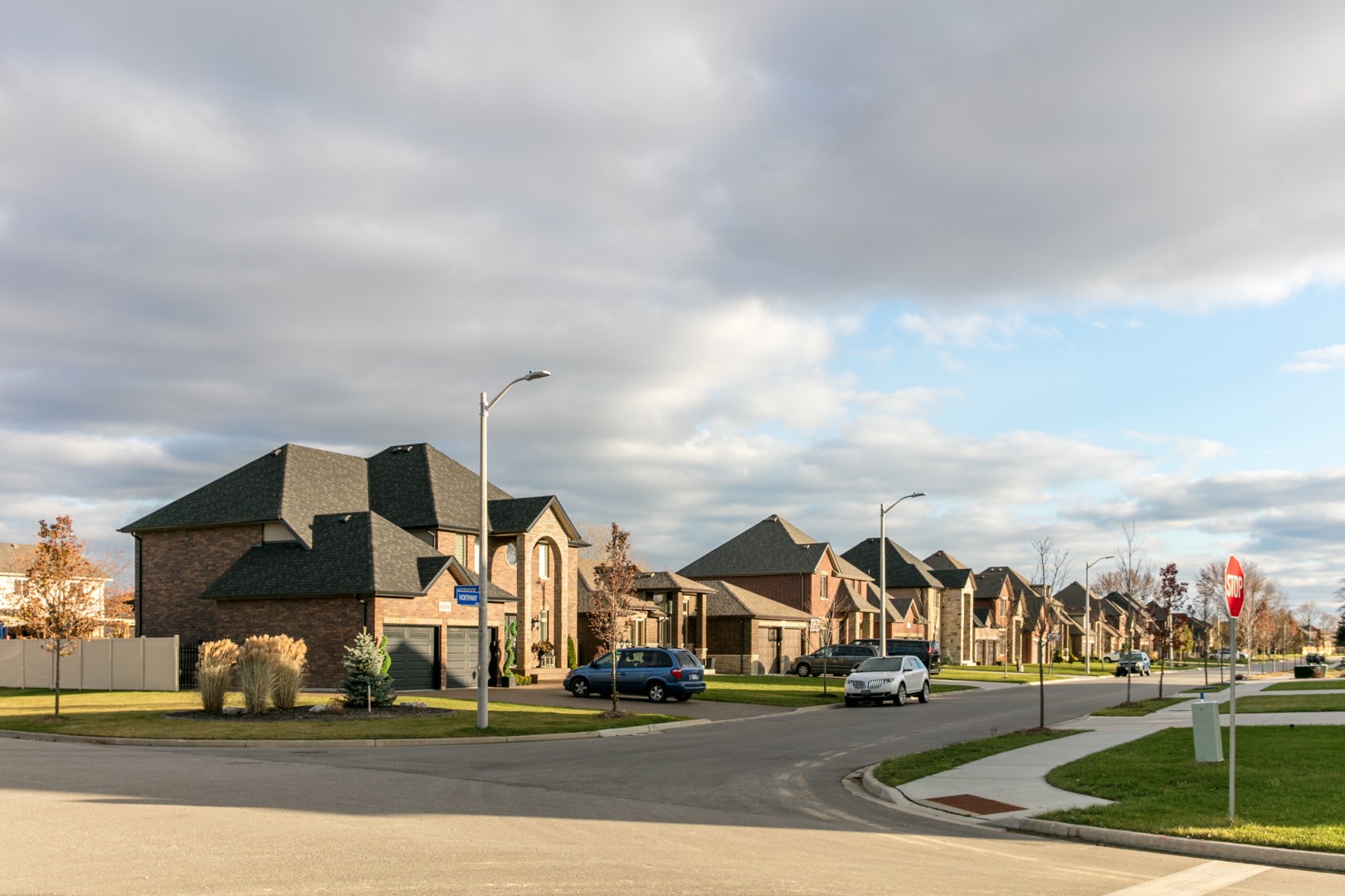
519-796-8509

George Guo is showing off one of his son’s Windsor rental properties, a two-bedroom house with a view of the river. The house is up for sale.
It’s small for a Windsor house, but positively roomy compared to much of what’s available on the Toronto rental market. It could definitely use some updating, but it has a large fenced yard, parking and two bathrooms. The floors are a little, well, slanted. But the roof is in good condition.
When Guo hears the exact same detached house in Toronto could sell for over a million dollars, he laughs and laughs and laughs. Guo’s son bought the house three years ago for $21,000 and is listing it for $49,900, standing to more than double his money, on top of the $650 in monthly rental income he’s been earning.
In other words, things have worked out exactly according to plan. In the depths of the recession, Guo encouraged his son to take the money he had saved working as an information technology contractor in Toronto and use it to buy six properties in Windsor, instead of just one in the big city. Guo, a 67-year-old retiree who used to own a car wash, acts as the property manager.
“Windsor, at that time, was a good time to buy a house,” Guo says. “I think the worst times are over.”
Calgary’s Boardwalk Real Estate Investment Trust just pulled off its own lucrative Windsor play on a much larger scale. Last week, the REIT announced an agreement to sell its entire portfolio of 1,685 units in the city, representing 12 per cent of Windsor’s apartment stock, to Skyline Apartment REIT for $136 million. Some of those apartments are in the city’s distressed west end, sitting across from boarded-up houses; others are in wealthy areas like Riverside Drive East, where mansions with stone gates and long driveways look out on the Detroit River. Boardwalk told the Financial Post that the capitalization-rate value Skyline put on the apartments (a ratio that measures rental income relative to the property’s worth) ended up being better than the rate that investors had been using to value Boardwalk’s entire portfolio on the stock market. In other words, Skyline believed Boardwalk’s Windsor apartment portfolio has better growth potential than apartments in other Canadian markets.
It’s true that across the country apartments — and the stable, reliable income they provide — are in high demand, particularly with returns being so weak from fixed-income securities. But as prices in Canada’s major markets rise higher and higher, the yields investors can expect from rents get squeezed tighter and tighter.
But still… Windsor?
Ask most Canadians what comes to mind when they think of the city of Windsor and they might picture a rust belt relic, blighted by boarded-up houses (although there are a few of those), abandoned factories (okay, there are some of those too) and employment insurance checks (unfortunately, still lots of those). American comedian Stephen Colbert once called Windsor “the earth’s rectum.” Plus, there’s the casino.
What they might not think of is Windsor’s beautiful waterfront and mild winters. And its red-hot housing market.
But investors who took a chance on Windsor during the painful 2008 recession, when the city’s 15 per cent vacancy rate was the worst in the country, are seeing their bets pay off handsomely as the economy recovers.
Today, the vacancy rate has dropped to about four per cent — still slightly higher than Halifax’s but already tighter than Gatineau, Que., just across the river from Ottawa. Home sales in the first half of 2015 are up 22 per cent compared to the previous year. And while Windsor no longer has the cheapest housing prices in the country, relinquishing that dubious honour to Saint John, N.B., it’s still possible to buy both low-end fixer-uppers and high-end waterfront mansions for a fraction of the price they would go for in any other Canadian city.
And there are plenty of signs that things are about to get even better. In a report last fall, the Canadian Mortgage and Housing Corporation predicted Windsor’s unemployment rate will fall below eight per cent by 2016 — buoyed by the American economy’s recovery and construction of the new Gordie Howe International Bridge across the Detroit River. And while the Windsor region was one of only two Canadian urban areas to experience population decline when the 2011 census was taken, that trend appears to be quickly reversing as people return to the city. The city’s first new purpose-built rental apartment building in decades is opening its doors.
Aik Aliferis, chief executive and founder of Primecorp Group of Companies, brokered the sale of Boardwalk’s Windsor portfolio to Skyline. He says interest is building in the city’s real estate market, which was considered toxic not so long ago.
“It’s definitely a unique market, a market that’s not sought after by all investors,” Aliferis says. “But some are finding it appealing and are feeling pretty confident with Windsor’s future.”
Darcy White, whose B.C.-based Rho-Orion Investments Inc. just won an investing award, buys distressed Windsor apartment buildings with high vacancy rates and turns them around. It’s generated him annual returns of 30 per cent over the last three years.
“People in Windsor thought we were crazy. They were saying, ‘This town sucks and we’re going out west to Alberta,’” White says. “They’re all going the opposite direction now.”

